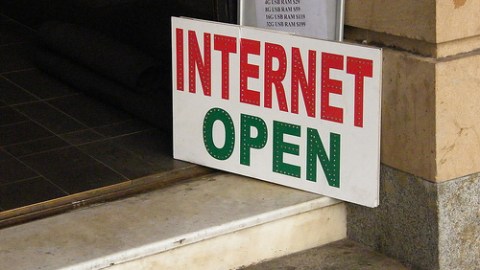What are educators’ professional obligations to learn from social media channels?

Paul Bogush pushed back (in a nice way) on my recently-popular post, If you were on Twitter. First he wrote about how most educators are too busy to be involved in social media. Then he wrote about all of the wonderful things that happened during the time when he wasn’t on Twitter. Because he’s a good writer, Paul evoked all the right feelings in my heart and head. Of course I want to spend time with my wife and kids instead of being on Twitter. Of course I want to read books and take walks in the woods and get my job done, all instead of being in front of a screen. But even though there are only so many hours in a day, it’s still a false dichotomy. As I said in my comment to Paul’s first post,
there are countless educators who are finding ways to tap into the connective and learning power of social media while simultaneously having healthy, balanced personal and professional lives. In other words, you do not have to be superhuman to do this stuff. We find time for what we think is important…
All of this time balance stuff aside, I believe that there’s a bigger issue worth considering. Let me explain…
Although there is a lot of noise out there on the Web, it’s hard to argue that there is little learning value in social media. There are numerous ways in which teachers and administrators could be using blogs, Twitter, Facebook, online videos, podcasts, online slideshows, and other social media tools to advance their own practice. Whether it’s subscribing to other innovative educators’ feeds, interacting and sharing resources with global colleagues, or consuming and using high-quality peer-created resources, there are myriad teaching ideas, lesson plans, Web resources, conversation spaces, technology tools, reflections on practice, and other pedagogical fruits that are ripe for the picking by online-savvy educators. Peer-to-peer online learning networks can help educators sort the wheat from the chaff and curate what’s relevant and powerful.
The barriers to using social media as learning tools usually are more mental, emotional, or logistical than technological. Most of the time we can teach people how to use these tools (or they can pick up the basics themselves) in just a few hours of focused learning.
In an era in which the possibilities for ongoing professional learning are numerous and significant, I wonder how long will it take us for us to start expecting educators to use these social media tools. It’s been 30 years since the advent of the personal computer and we’re still struggling to get teachers and administrators to integrate digital technologies into their daily work in ways that are substantive and meaningful. Meanwhile, we now have a bevy of powerful learning tools available to us that can advance our own professional learning (and, of course, make our technology integration and implementation efforts more efficient and effective).
In other words, will we ever stop saying that whatever print publications we may subscribe to, a few professional development days spread across the year, and occasional and sporadic attendance at conferences sufficiently satisfy our obligations to be learners of our craft?
Image credit:Internet open





